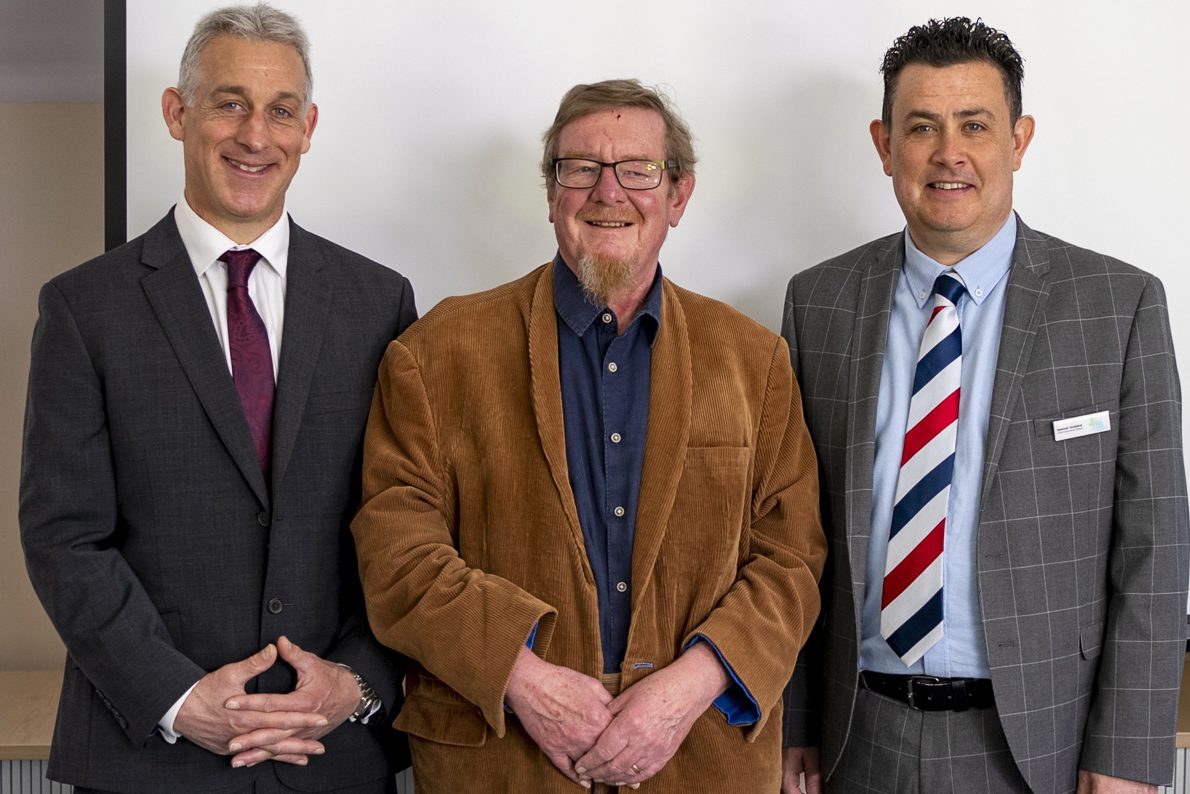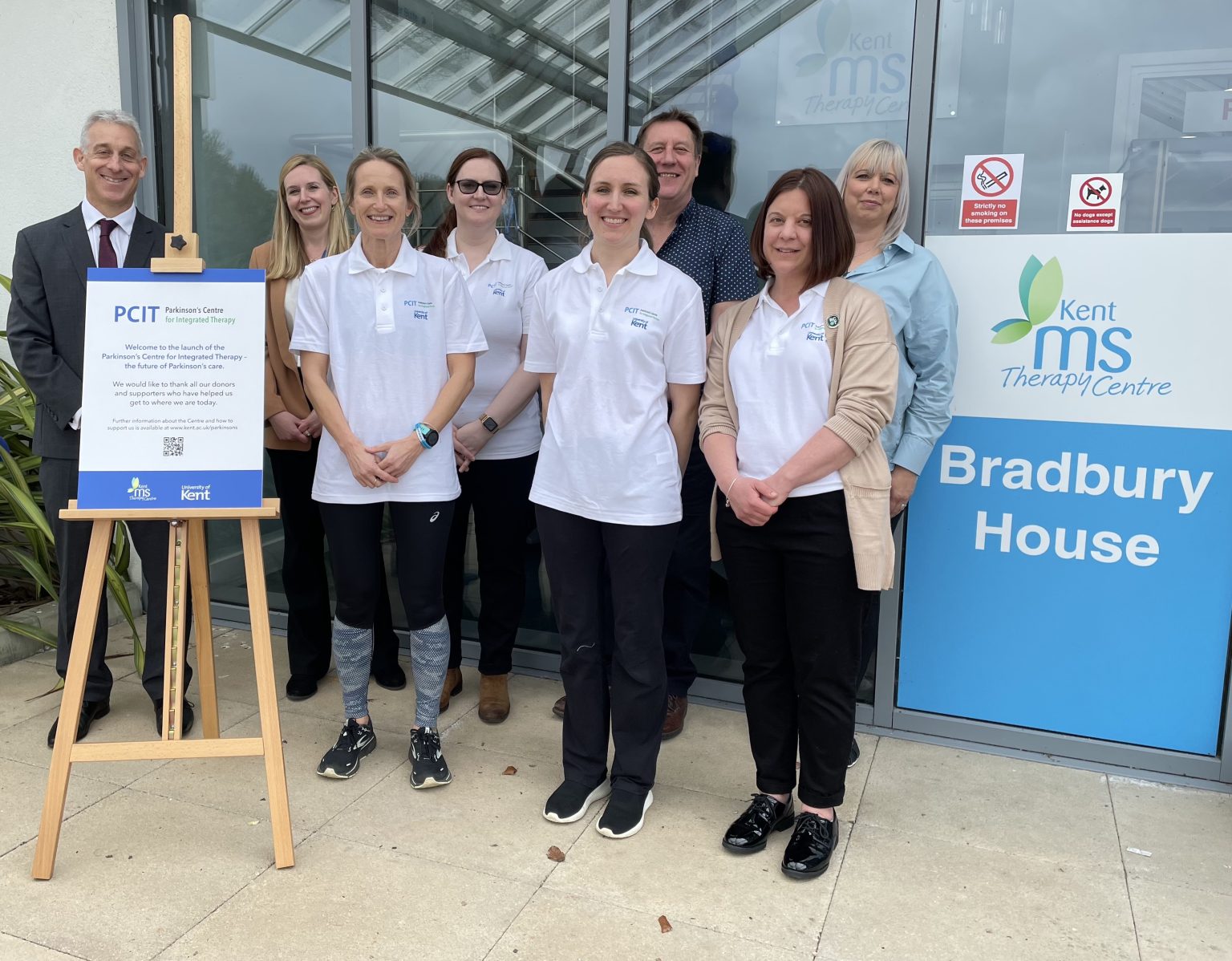Professor David Wilkinson has launched the Parkinson’s Centre for Integrated Therapy, a new community-based centre for those suffering from Parkinson’s disease.
A partnership between the University and the Kent Multiple Sclerosis (MS) Therapy Centre, the Parkinson’s Centre for Integrated Therapy (PCIT) will be the UK’s first for non-drug therapy for Parkinson’s disease.
Incredibly, one in 37 people live with Parkinson’s, a prevalence that is set to nearly double by 2065, with more than 4,000 people currently living with the disease in Kent. According to the National Institute for Health and Care Excellence, people with Parkinson’s need access to non-drug therapies to help improve their physical and mental well-being. These therapies include neuro-physiotherapy, group exercise, psychotherapy, speech and language therapy, nutritional advice, and occupational therapy. Unfortunately, and until now, these therapies have been neither consistently nor quickly available. The problem is exacerbated by a model of care that does not easily allow different therapies to be personalised and coordinated.
With the PCIT, these therapies will be brought within the reach of many people who struggle to access them. The PCIT will offer an individualised service that promotes self-management, home-based monitoring, the swift identification of new healthcare needs, and liaison with NHS healthcare providers to create a joined-up service that places the person with Parkinson’s disease at its core.
Based at the Kent MS Therapy Centre’s purpose-built neurological facility, the PCIT will also conduct and host cutting-edge research to better understand and treat Parkinson’s disease. Educational programmes will be offered to train the next generation of healthcare practitioners and scientists in this community-based approach to help people with Parkinson’s disease live their best lives possible.
The launch event was attended by almost 300 people. Among those to speak were the journalist and former BBC Europe and North America editor Mark Mardell, who revealed his Parkinson’s diagnosis in October 2022 and is Patron of the Centre. During his speech, Mark, who recently launched the Movers & Shakers podcast with fellow Parkinson’s sufferers including Jeremy Paxman and Rory Cellan-Jones, explained the challenges and fears he has faced since his diagnosis, as well as his expectations for the ‘game changing ambition’ of the PCIT.
Mark also spoke to Kent resident Sudhir (Krish) Krishnan via a live link during his trek to Everest base camp. Krish was diagnosed with young onset Parkinson’s disease 15 years ago at the age of 37 and, partly to raise urgently needed funds for the PCIT, has taken on the brave challenge of trekking to the camp which is elevated at 17,598 feet above sea level.
Professor David Wilkinson, Director of the Parkinson’s Centre for Integrated Therapy, said:
“I was absolutely delighted to welcome so many people to the launch and look forward to helping even more people with Parkinson’s disease over the coming years. Although our start-up funds will currently only sustain us for eighteen months, we could not wait any longer to launch given the increasing demand for our services.”
Professor Wilkinson also expressed his thanks to ‘all those who have got us to where we are today – our supporters, benefactors, and, of course, the Kent MS Therapy Centre, with whom I look forward to an innovative and creative partnership.’
Spencer Goddard, Chief Executive of the Kent MS Therapy Centre, described the PCIT as ‘ground-breaking and a great opportunity for county Kent to have this first of its kind centre in the UK’. People with Multiple Sclerosis and Parkinson’s have similar long-term care needs,’ he said. ‘This is one of the reasons why our partnership is such a natural fit. It also makes sense in that here at the Multiple Sclerosis Therapy Centre we already have many of the facilities and services that those with Parkinson’s disease can access and benefit from.’
Further information about the Centre, including how to become a member and how to support, it is available on the PCIT website.


